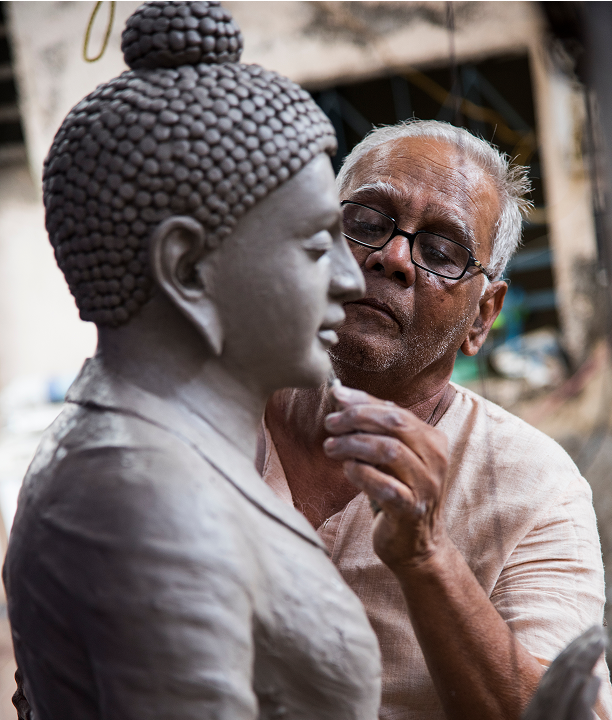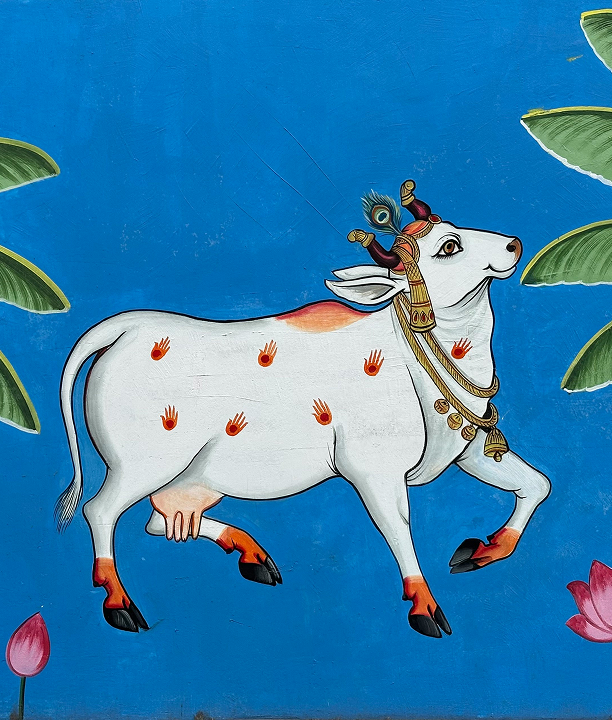Most people know about ahimsa, the principle of non-violence, thanks to its connection with Gandhi and India’s independence movement. But ahimsa has much deeper and older origins, stretching back thousands of years across various spiritual paths, Jainism, Buddhism, and Hinduism among them. These philosophies didn’t just preach avoiding harm; they invited people to actively cultivate kindness in every thought and deed.
In everyday life, this translated into a gentle relationship with animals and the environment. Care was taken in farming, in medicine, and even in the way food was prepared and shared. Ayurveda, India’s ancient system of medicine, embraced plant-based remedies that healed without exploitation. It was about balance, nurturing life while causing as little harm as possible.
Indian mythology and folklore are filled with stories that reflect a deep respect for animals. Cows, revered as symbols of nourishment and generosity, were protected and cared for rather than used simply as resources. Elephants represented wisdom and strength, while peacocks symbolised beauty and grace. Even smaller creatures found their place in these stories, reminding us that no life is insignificant.
Festivals often celebrated this connection. The festival of Pongal in Tamil Nadu honours cattle for their role in agriculture, with farmers decorating their bulls in bright colours and offering gratitude. In Gujarat, the Paryushan festival, observed by Jains, involves intense reflection and strict non-violence, often extending to the avoidance of root vegetables to protect tiny organisms underground.
Such rituals reinforced a worldview that saw humans as part of a larger community of life rather than above it.
Food is one of the most tangible expressions of culture, and India’s culinary heritage presents a treasure trove of plant-based traditions. Across its many regions, vibrant meals made from lentils, grains, vegetables, and spices have been lovingly passed down through centuries.
In Gujarat, the thali is a beautiful balance of flavours and textures, often entirely plant-based, featuring dishes like undhiyu, a slow-cooked mix of winter vegetables and beans. In the southern state of Kerala, meals are centred on coconut rice and an array of spices, creating dishes such as avial, a medley of vegetables in a spiced coconut sauce. The cuisine of Rajasthan, with its arid landscapes, relies heavily on legumes, millets, and dried vegetables, showcasing resourcefulness and respect for the environment.
Unlike some modern vegan meals that focus on substitutes, these dishes celebrate what nature provides in its pure form.
What’s more, many traditional Indian sweets are naturally vegan, made from coconut milk, jaggery, and nuts. These recipes show us that compassion and indulgence can go hand in hand.
The beauty of India’s ancient vegan traditions is that they were never about perfection or strict rules. They were a living, breathing way of connecting with the earth, with others, and with oneself. Kindness was not a burden but a path that suggested meaning and belonging.
Today, as more people around the world embrace veganism, there is much to learn from these timeless traditions.
At The Vegan Routes, we are inspired every day by this legacy. Our journeys are not only about discovering beautiful places or delicious food but about reconnecting with these ancient values in a modern context. When we walk through markets, share meals with local families, or participate in traditional ceremonies, we feel the pulse of compassion that has shaped India for centuries.
“From the coconut groves of Kerala to the millet fields of Rajasthan, food was a quiet offering to the land, the animals, and the rhythm of life itself.”
Veganism here is not a trend; it is part of a deep-rooted culture waiting to be explored and celebrated. By tracing these ancient paths, we invite you to experience a form of compassion that is as old as the land itself and as fresh as the morning’s first meal.

